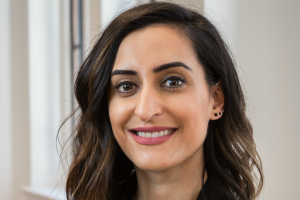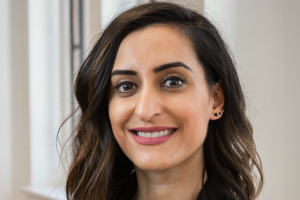
I can’t believe it took seven years as a GP to challenge why, when I am not a dentist, I keep having patients turn up to see me with oral problems.A grumbling irritation I’ve had for years finally erupted a few weeks ago as I saw my fifth patient of the week attend for toothache.
The role of a GP may be described as ‘expert generalist’ but that doesn’t mean we should expect to be called out to fix a blocked drainpipe. That said, I am confident a GP would probably know more about said plumbing issue than some necrotic looking tooth I barely know the anatomy of.
So it was, I became a little frustrated and did what you do to vent these days, taking to Twitter to tell our dentist colleagues about it. I felt better for about 24 hours, as my dental colleagues were empathetic. They even started a hashtag #doctordentistcollaboration – always the best way to begin policy change.
I didn’t feel comfortable managing something I didn’t have the clinical information for
To my surprise, they fully accepted that there were issues with dental access. I liked the idea of collaborating to better educate the public about using services appropriately. There was also a suggestion that doctors and dentists needed to educate one another about what the different specialties do. It took just one tweet to solve this conundrum – dentists do the mouth, doctors do everything else. The whole exchange was a lot easier than with most health board collaborations.
The storm subsequently calmed down, but was that in patients’ best interests?
Midway through my afternoon surgery today, I saw a patient who was referred by his private dentist to see his GP for painkillers and antibiotics. This dentist had diagnosed a ‘fractured jaw and tooth misalignment’ following trauma, as explained by the patient.
The patient obviously saw my physiology change and apologetically handed me the only letter he was given by this dentist – a beautifully designed glossy invoice. The fee of £225 for a consultation and a CT scan with a follow up appointment the next day for £99 stared at me. At the bottom was his name with, ironically, the title of ‘Dr’ in front of it, followed by an impressive list of qualifications. Unfortunately, Dr. Dentist was unable to prescribe analgesia and antibiotics to his patient for management of a diagnosis he made.
In sheer frustration, I tried to contact this dentist to understand his reasoning for sending a patient to me without any correspondence and without an adequate management plan in place. I wouldn’t diagnose a patient with piles then send them to a podiatrist to sort this out, so why did this dentist think he could dump on a GP like this?
At 4:30pm the dentist had left for the day. I couldn’t get hold of him and now this was my problem. I didn’t feel comfortable managing something I didn’t have clinical information for, but what was I to do? I had a helpless patient in severe pain in front of me. This consultation took me 40 minutes to sort out as I tried to find out the facts.
Despite the general consensus for better collaboration in that Twitter debate, some argued that doctors need more dental education. It takes five years to become a doctor to learn about the human body. It takes five years to become a dentist to learn about the head and neck. I would argue that perhaps the dental faculty needs to incorporate more clinical medicine and pharmacology in its education curriculum so dentists can take responsibility for their own patients and manage them effectively. This seems particularly important given dentists are regularly performing invasive procedures that are highly traumatic, extremely painful and associated with a high risk of serious complications.
I believe a dentist should be able to prescribe diazepam for their anxious patient. They should be able to perform a medication review prior to operating on their patient. They should be able to manage anticoagulants, prescribe antibiotics appropriately and manage the analgesic ladder. None of these issues should be referred to the doctor, especially without correspondence.
I fully appreciate that there are many exceptionally talented, dedicated and holistic dentists out there who are at the opposite end of this spectrum. I have a lot of respect for their input to healthcare. We should support one another, work together and not dump on one another.
In order to facilitate better patient care then, we should perhaps consider sharing patient ‘key information summaries’ with our dental colleagues, as we do with the out-of-hours service. Furthermore, we need to have collaborative discussions with local dentists to raise the awareness of dental emergencies for both clinicians and the general public so everyone knows who to contact and when. The doctor is not the default setting.
It is time for change.
Dr Punam Krishan is a GP in Glasgow
Pulse October survey
Take our July 2025 survey to potentially win £1.000 worth of tokens












